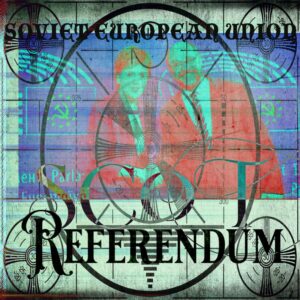Referendums are meant to be offered to the public as ‘once in a generation’ votes, and that means within a period of 30-40 years.
The Scottish vote of Independence was held on 18 September 2014 saw Scotland vote to remain part of the United Kingdom (UK), with 55% voting against the proposal for Scotland to become an independent country and 45% voting in favour. The UK survived the vote thanks to some clever tactics.
Nicola Sturgeon herself, at the time was quoted as saying that the ‘eu referendum was a once in a generation opportunity for Scottish independence’ and said she would respect the result of the vote whatever it was. You can’t just keep repeating votes until you get the answer you want.
If referendums are repeated ad infinitum simply because the losing side does not like the answer of the vote, then referendums are not democratic, because they are votes completed until the side that wants their result to come up eventually materialises.
If the Scots are allowed to have another referendum for independence in 2021, since the 2014 referendum, then who is going to stop another referendum for anything else, including the EU referendum so close in date to each other?
Breaking up Britain is one of the major focuses of the EU, as a punishment for leaving the Soviet bloc, and Sturgeon has regular briefings with EU Commission operatives, and EU technocrats regarding breaking off Scotland from the United Kingdom union. Furthermore, it is in the interests of Britain’s enemies to divide Britain, to weaken it economically as a whole Union.
If Scotland tries to break away from the UK by abusing referendums, this could be construed as a military matter, and a matter of national security. In this respect, the military could be utilised to dispel any further rebellion from the agitators and separatists, viewing them as terrorists. Once the country is stabilised, a parliament that reflects the United Kingdom as a more broad representation could be installed in Scotland. Politics aside, democracy would be temporarily wavered in a time of internal war, then re-instated after Scotland has stabilised.







